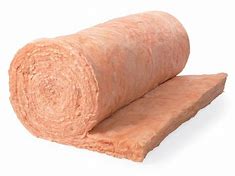|
Home Insulation By Pierre Mouchette | Real Property Experts LLC Most likely, if your home was built before 1980, it is not insulated to modern energy efficiency standards. Only about 20-percent of such dwellings are due to homeowner renovations. As a homeowner, you should know that insulation’s value goes beyond the following:
How Do I Know if I Have Enough Insulation? A professional energy auditor can use special tools to determine where air leaks and heat loss occur. You can hire a company to perform one for you, or you might even find a local utility or governmental agency that offers an audit free of charge or at low cost. Homeowners can also measure the existing insulation if access to it is available. To do so, find the depth or thickness of the insulation and then multiply it by the R-value it offers. You then have the total R-value. Compare your insulation total to ENERGY STAR’s recommended insulation levels or use the Department of Energy’s R-value recommendations calculator. What Insulation to Choose? To select an insulation product, you need to factor in where you are installing it, how much of the product it takes to provide the R-value you desire, and whether you can install it yourself or need a professional. Insulation - the most common insulation for the DIYer is rigid foam insulation (a sheet of 4-feet wide and 8-feet long); and fiberglass batts or rolls that are cut to length and either stapled in place through the paper facing or friction-fit between framing. Other options include:
Home Insulation - Windows and Doors Today’s windows and doors are insulated. When replacing, take your time and shop around. Also, if you choose to hire a contractor for any work, make sure to get an estimate and investigate the contractor’s reputation. Retaining heat indoors in the winter and cool during the summer can be aided by selecting replacement windows and doors. Careful planning, getting plenty of information, and taking your time generally helps any job turn out better. Suggestions for Existing Windows and Doors:
Home Insulation - Other Energy-Efficient Ideas As you continue to read about energy-efficient ideas, you will appreciate how some minor fixes will make a change in your energy consumption. Lower bills, better air quality, and more comfortable temperatures – the advantages of making your home energy efficient far outweigh the drawbacks in time and hassle.
Comments are closed.
|
Archives
May 2024
|
